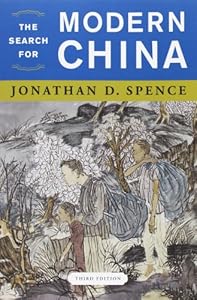
Bottom-up is the only thing that works.
But there's no power over other people in bottom-up.

This would appear to be the chink in China’s armor.
Pei-Ping.
There is another explanation. While traditional Chinese thought revolved around the five elements; the emperors were associated at birth and raised with the idea of the four symbols.
These four, the Azure Dragon, the Vermilion Bird, the White Tiger, and the Black Turtle, also represented the four seasons. Spring was a time of renewal, summer was of the ripening of the new, fall represented the decay, and winter was associated with flooding and death.
Raised with their particular season in mind, emperors were guided to exhibit the seasonal cycles in their behavior. If they did, their orders were promptly carried out, but if they went against their programming, their orders would be ignored of carried out poorly.
So the purpose of the spring emperor would be to rebuild China from scratch. Everything brand new. His successor, the summer emperor, would fine tune everything so that it was working efficiently.
The third emperor in the cycle was the ‘degenerate’ emperor, who would draw the government into Peking, and let the country fall apart through neglect. And his successor was the winter, water emperor, who would tear down everything, usually at the cost of many lives, so to again make China a ‘blank slate’ for his successor, the new spring emperor.
The last emperor was a degenerate emperor, and everyone expected Mao to behave like a murderous water emperor, and eventually he did.
But what does “reform” mean in this context?
The Confucian mindset was so rigid that every physical object in the winter palace was not just numbered, but had an indicator on it for the direction it was to face.
From their point of view, everything was fine as long as everything was in its place. Reform was just to keep everything the same.
And hence sprang the expression: “The more things change, the more they stay the same.”
pretty simple,
BIG GUB MINT